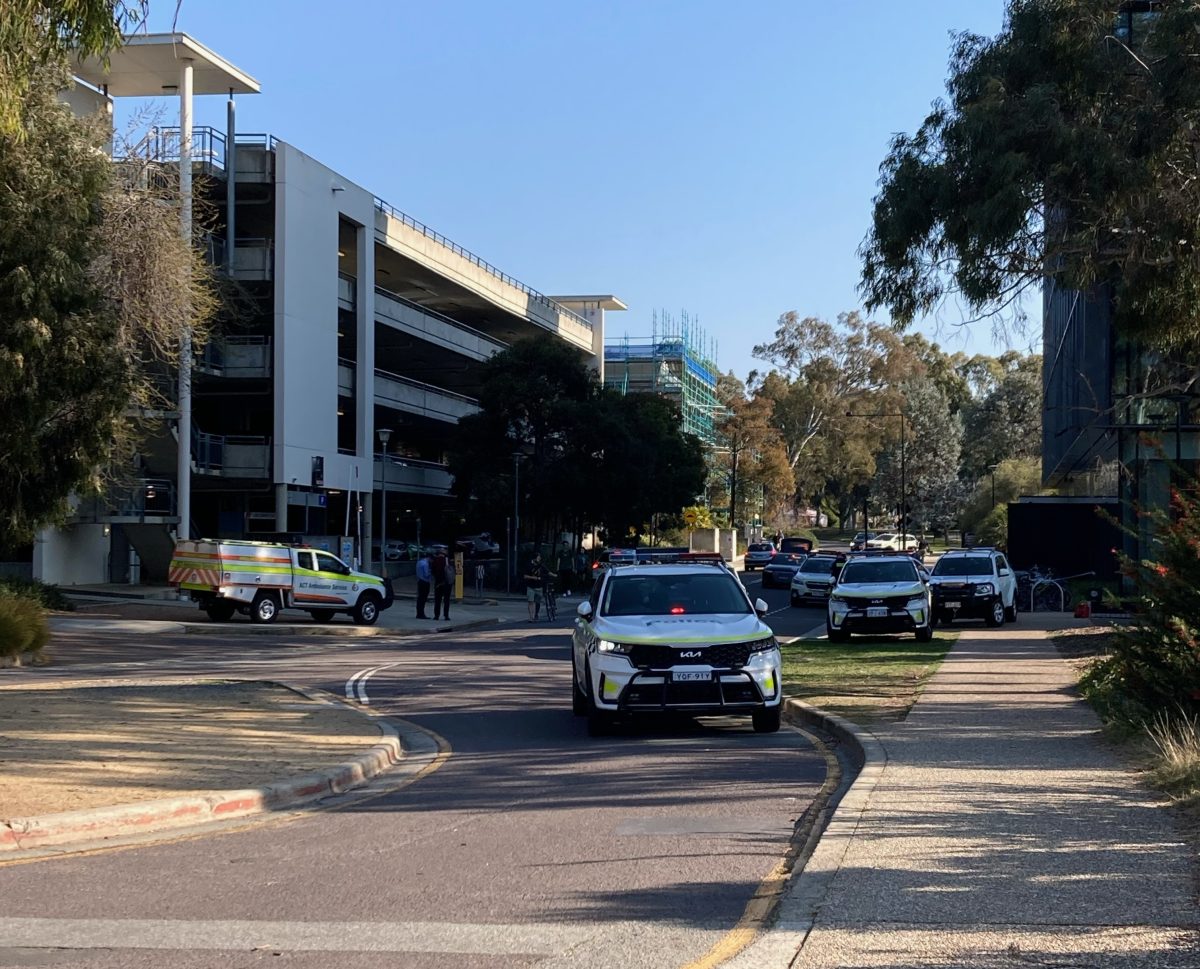
Police at the ANU in September when two women were stabbed. Photo: Joanne Griffiths.
The full report of the ACT Government’s previously announced review into the circumstances of the ANU stabbing incident in September will not be made public due to privacy laws.
The government says the review by the ACT Chief Psychiatrist, which has been broken into two parts, has begun its work.
The first will be a clinical review of the incident on 18 September when a detainee of the Gawanggal Mental Health Unit in Bruce allegedly stabbed two women with a knife and attacked two men with a frying pan.
Alex Leonard Ophel has been charged with two counts of attempted murder, two counts of assault and a single count of possessing an object with the intent to cause harm.
Ophel was previously found not guilty by way of mental impairment following two trials after attacking several people with a baseball bat on the ANU campus in 2017.
The clinical review will be undertaken by a Special Purpose Quality Assurance Committee (QAC). Membership of the Clinical Review Panel includes experts from outside the ACT, including a forensic psychiatrist from Victoria, a forensic mental health nurse from Queensland and a consumer advocate from Victoria.
However, the government says the QAC report will not be released publicly due to the strict privacy of protected information provisions under the Health Act 1993.
It says advice will be sought from the Chief Psychiatrist to consider what information can be released publicly without compromising the privacy and confidentiality of people involved.
A spokesperson said the government’s intention was to release as much of the findings contained in the Chief Psychiatrist’s report as possible, having considered patient privacy and any relevant legal restrictions.
The second part will be an expanded review, with a focus on best practice for mental health services to manage individuals found not guilty due to a mental impairment by the courts and transferred from custody into the care of mental health services.
The expanded review will also include experts in forensic practice and mental health law, and its membership will be finalised soon.
The terms of reference for the expanded review are being finalised and will be released shortly.
The Chief Psychiatrist will seek input from a variety of relevant stakeholders, which may include police, ambulance and carers.
Mental Health Minister Emma Davidson welcomed the establishment of the Chief Psychiatrist’s review.
“The Chief Psychiatrist and experts engaged for this part of the review will meet with relevant stakeholders to understand their perspectives,” she said.
“The external experts will also provide best practice advice to the Chief Psychiatrist from a review of processes in other jurisdictions and research. This will enable the Chief Psychiatrist to formulate recommendations for the ACT.”
Attorney-General Shane Rattenbury said in the days after the ANU incident that the Chief Psychiatrist would be able to look at the circumstances, both in the lead-up to this matter and how “this individual [allegedly] came to be where he was at the time of the incident”.
“That will give us a clear view of the circumstances and whether there are any matters that are systemic beyond the individual circumstances of the person [alleged to be] involved,” he said.
Mr Rattenbury said the government was particularly interested in determining how Ophel was able to make his way to the ANU campus and the decisions made up to that point.
“[We’ll also] consider whether the safety provisions that were in place around this individual were met and if there are any systemic issues that arise from the circumstances,” he said.
The QAC report will be handed to the responsible Director General before the end of 2023, while the Chief Psychiatrist has indicated that his report following the expanded review should be completed by January.

















